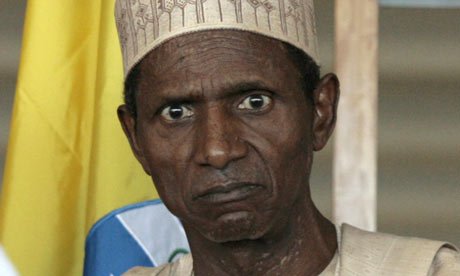5 YEARS AGO – At least two coups were averted in Nigeria on February 9, 2010. The first, which was already being carried out, was by the “cabal” that had held ailing President Umaru Musa Yar’Adua incommunicado in a hospital in Saudi Arabia. It was dishing out messages on behalf of the president and even signing his signatures and looting the nation’s treasury. The second was a military coup that everyone in Nigeria could smell, owing to the vacuum created by Yar’Adua’s absence for 47 days and his failure to allow the vice president, Dr Goodluck Jonathan, to act on his behalf.
Yar’Adua had been rushed out of the country on November 23, 2009, due to his failing health. Indeed, his health continued to deteriorate throughout his reign and even before the election that brought him to power. Discerning observers have always noted the mischief plotted by outgoing President Olusegun Obasanjo after the collapse of his “third term” gambit in 2006. He was said to have picked Yar’Adua as his party PDP’s presidential candidate because he believed that Yar’Adua would not survive beyond 2007, so that his deputy from the south (he chose Jonathan also) would take over. Once or twice, Yar’Adua abandoned the campaigns and was rushed to Germany for treatment of his diseased kidney. “Umoru, are you dead?” Obasanjo asked him on the phone from the campaign ground.
In hindsight, it is clear that Yar’Adua did not say or do things from his sickbed that the “cabal” ascribed to him: Yar’Adua is watching football. Yar’Adua says he will come back when God heals him. Yar’Adua has signed the budget. So frustrated were many that information minister Dora Akunyili had to attack the “cabal” and ask that Jonathan be allowed to take his place. Several interest groups, including newspapers, agitated for the vice president to be sworn in.
The National Assembly led by Senate president David Mark foiled the coups on February 9, 2010, by adopting the “Doctrine of Necessity” to make Jonathan “acting president”. Because Yar’Adua did not transmit a letter to the legislature informing it of his absence or delegating powers to the vice president as required by the constitution, the legislators said they would rely on a statement of the president published in a newspaper. The nation was relieved.
On the eve of February 9, the acting president, now backed by the law, addressed the nation promising what “this administration” would do. The address was preceded by the National Anthem.
His government became, for the next 86 days, another “child of necessity” born in Nigeria. The first, which lasted almost the same period (83 days) was led by Ernest Shonekan between August 26 and November 17, 1993. In Jonathan’s case, the substantive president (Yar’Adua) died on May 5 and he was sworn in on May 6 morning. Shonekan’s interim government – popularly described as a child of necessity – was born following military president Gen. Ibrahim Babangida’s decision to “step aside” as a result of widespread discontent over the annulment of the presidential election held on June 12, 1993. Shonekan was overthrown by Gen. Sani Abacha.
February 9, 2015, will therefore, mark the fifth anniversary of President Jonathan’s ascension to the office of president of Nigeria. After serving out Yar’Adua’s tenure, he was elected president in 2011.











